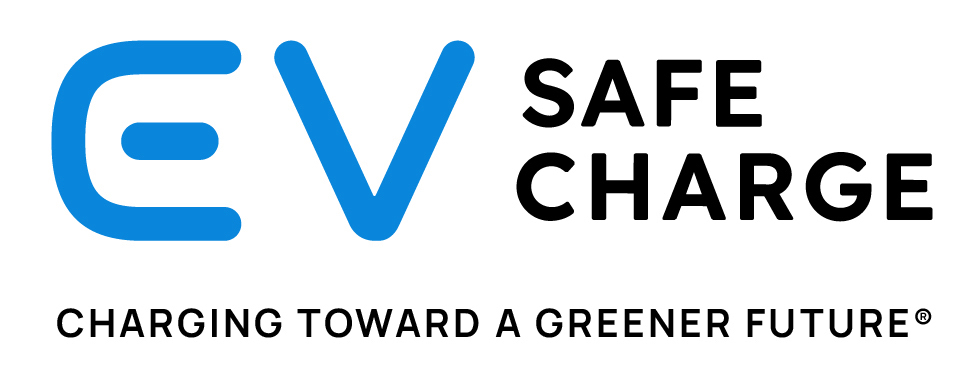Mobile EV chargers deliver power where it’s needed
A few companies have introduced mobile charging products to solve unique challenges.The perceived lack of ready access to charging stations is one factor that has limited consumers’ interest in buying electric vehicles. While the number and diversity of locations of EV charging stations are growing, thanks to networks such as Electrify America, chargers can be hard to find in urban centers, or on the outskirts of cities.

For charging network operators and would-be site hosts, determining the best new locations to satisfy the expanding fleet of EVs has been challenging, due to the need to know where the vehicles reside and where they are most frequently driven. However, the necessary data to answer these questions is not freely available, which makes the ability to relocate charging stations if stations become underutilized an attractive option.

Los Angeles-based charging infrastructure developer EVgo has been at the forefront of DC fast charging since its inception in 2010. In September 2018, the company unveiled its EVgo FastStart modular units, which can include a combination of Level 2 and DC fast charging connections.
Installing charging stations, especially those featuring higher power levels, can take months to a year or more, due to permitting requirements and any capacity upgrades that must be negotiated with the utility. According to Ivo Steklac, CTO at EVgo, FastStart units are prefabricated and can cut the time for installation down to just a few days, as they are attached to a pad that alleviates the need to pour a concrete foundation. The portability of the units is beneficial to customers who may have shorter-term leases at the locations, and where additional value can be received by moving the chargers to another location, according to Steklac.

FreeWire Technologies is focusing on the portability of EV chargers with its Mobi EV Charger products, which sit atop wheels for easy relocation. The company, which is based in San Leandro, California, currently has chargers delivering power to 300 Volkswagen EVs in London, in partnership with the local utility Centrica and shared fleet operator Zipcar. FreeWire’s mobile DC chargers can deliver up to 120 kW of power, and the company also offers Level 2 charging. According to Arcady Sosinov, CEO of FreeWire, if more than 20 vehicles per day need to be charged, FreeWire’s service is less costly than a stationary solution, even when factoring in the additional labor cost of moving the chargers. The Mobi EV Charger features battery storage, so it draws power at a rate of 20 kW or less, which allows station operators to avoid incurring utility demand charges, which can add thousands of dollars per month in energy costs.
In addition to working with automakers and ridesharing fleets, FreeWire is partnering with utilities such as the Sacramento Municipal Utility District (SMUD), which is leasing out the FreeWire chargers to fleet customers. “Utilities are looking at (mobile charging) as a non-wires solution,” said Sosinov. He added that multi-unit dwellings can also benefit from mobile charging, because of the challenges of getting access to parking spots near power and the difficulties of negotiating with homeowners’ associations that don’t want to give preferential treatment to specific tenants. FreeWire has received funding from BP Ventures and the Volvo Tech Fund.

Event organizers at remote locations that need to accommodate EVs on a short-term basis require portable solutions that can be brought in on trucks and taken away the same day. One company addressing this need is EV Safe Charge, which is based in Los Angeles. The company’s EV Charge Mobile stations can deliver up to 50 kW of DC power, and are not grid-connected. CEO and founder Caradoc Ehrenhalt says the company is using diesel generators to provide the electricity, because “battery-based solutions discharge too fast” and have insufficient capacity for the volumes of energy needed by EV Safe Charge’s customers. To make the use of its products more sustainable, Ehrenhalt claims that EV Safe Charge offsets the greenhouse gas emissions by planting trees.

EV Safe Charge rents equipment for short-term events including festivals, sporting events and EV launch events that last only a few days. The company first put its technology in the field when it provided charging stations to Jaguar, which needed power to support ride-and-drive events to promote the launch of its I-PACE electric SUV.

Taking a more simplistic and localized approach is Berlin-based Chargery, which focuses on vehicles dispersed in cities where the available charging is insufficient or too inconvenient. The startup uses bicycles to tow a small trailer containing a 24 kWh battery to deliver charging to vehicles parked in urban areas. Power delivery is limited to 3.7 kW, and the company claims to be using 100% renewable energy to charge the batteries. Chargery lists as clients BMW, Daimler and Skoda, and has received investment from mobility services company Sixt.

Predating these efforts to make charging easier to deploy and free from grid connections are solar EV chargers, which debuted nearly a decade ago. Envision Solar, of San Diego, produces charging equipment that combines solar power with battery storage to enable vehicles to be plugged in without the need for a grid connection. These portable stations, such as Envision’s EV ARC, can provide power temporarily or permanently at a lower cost in locations that are far from power, by alleviating the need for costly trenching or capacity upgrades.
When EV charging stations were first rolled out, many thought of them as destinations for refueling that would be worth the trip. However, EV owners want to charge wherever they normally go, which is often in crowded areas where parking is challenging, or far away from power sources. It may be that not all of the above approaches to mobile charging will establish a successful niche, but they are making valuable progress towards the goal of bringing convenience to the expanding EV audience.
https://chargedevs.com/features/mobile-ev-chargers-deliver-power-where-its-needed/













